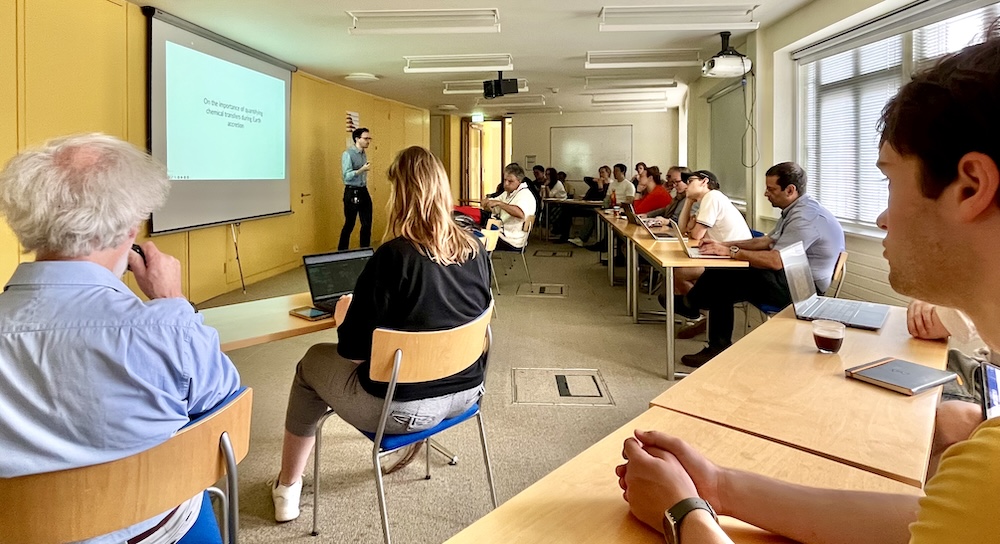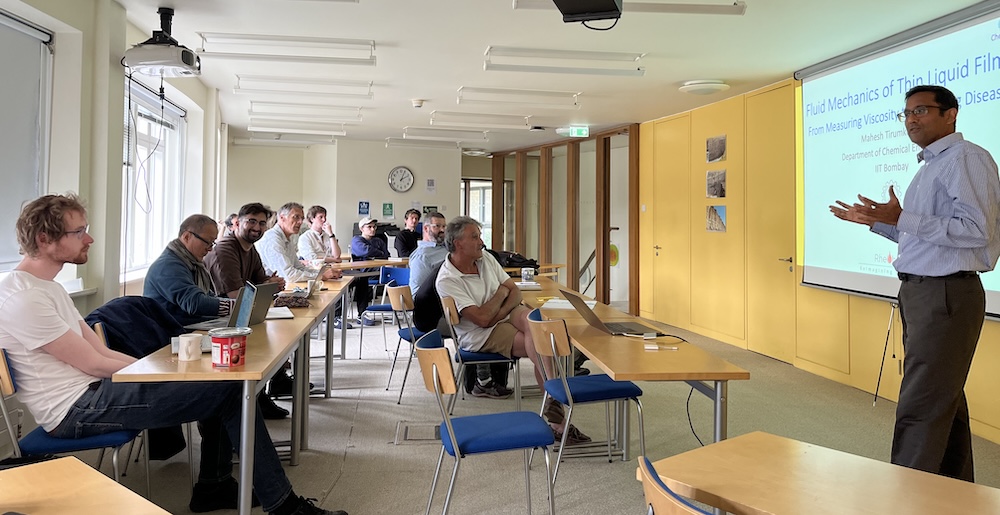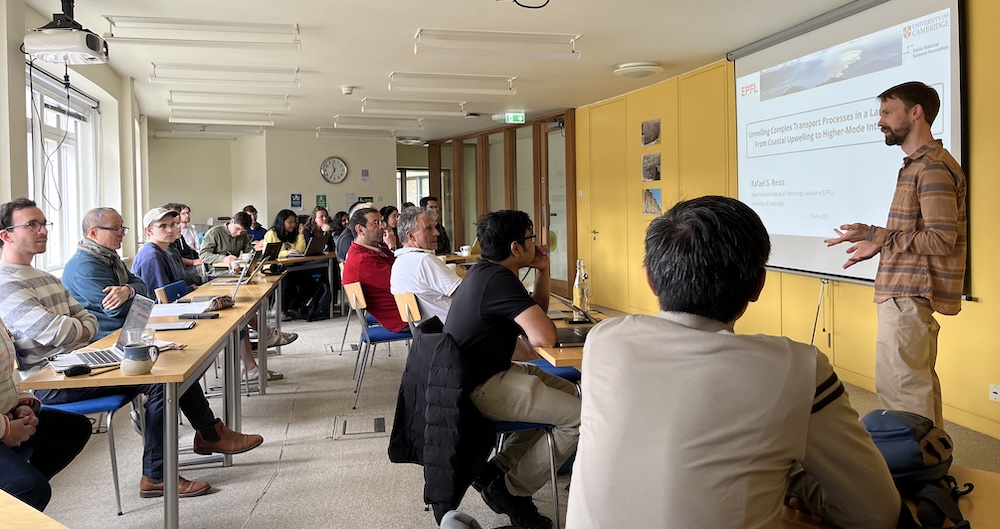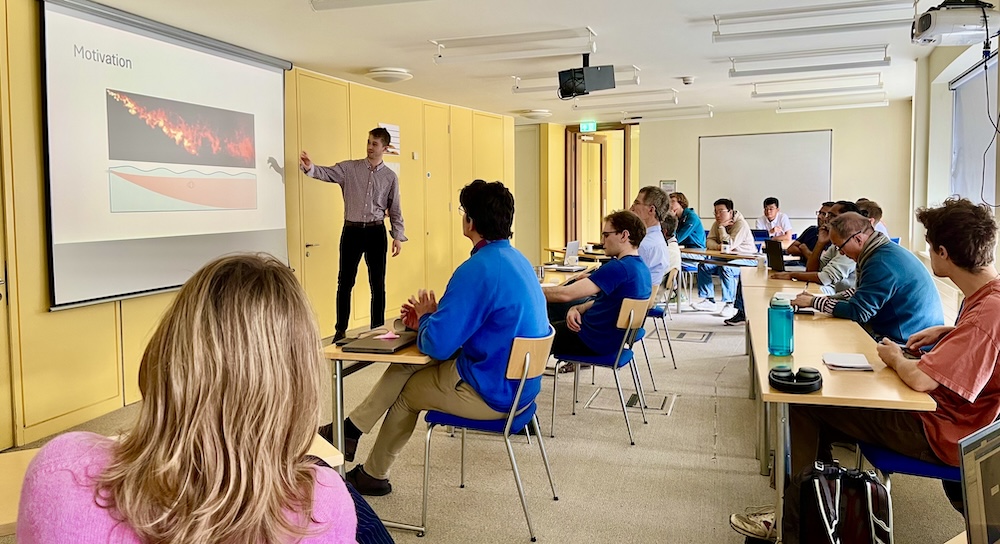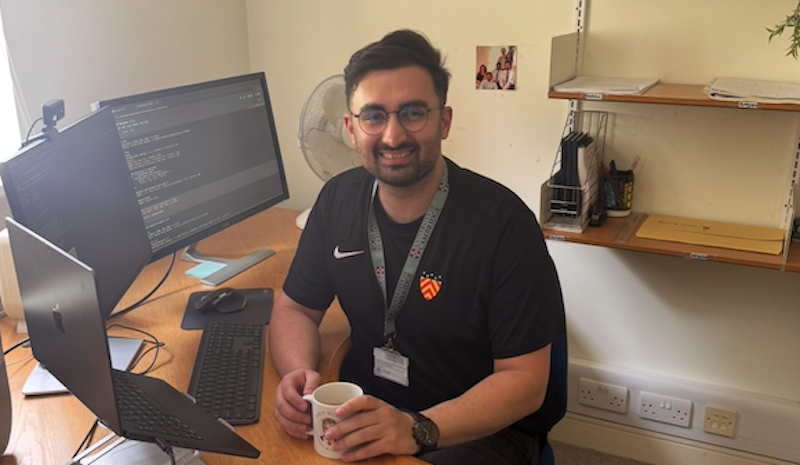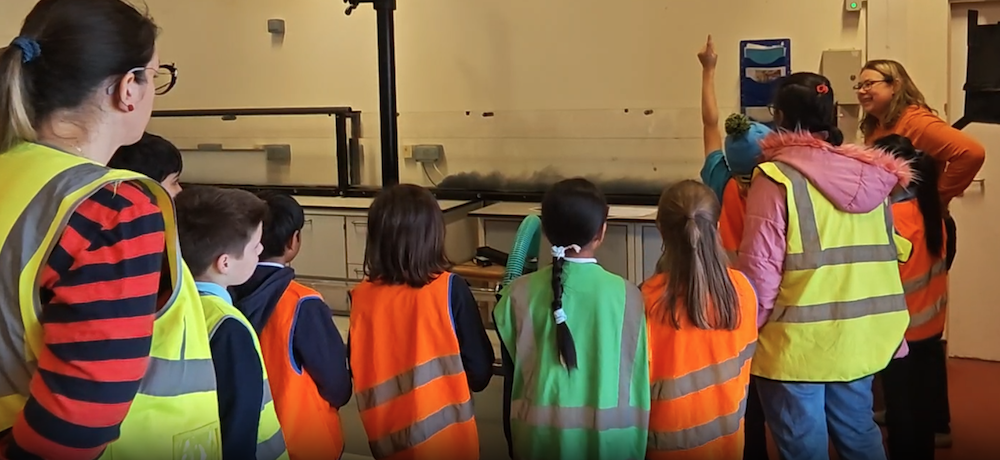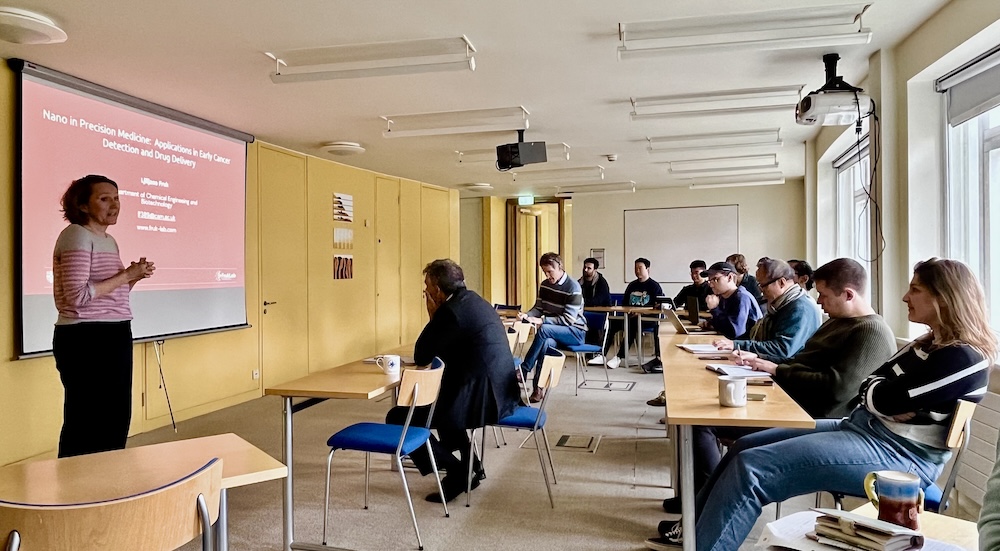Summer garden party: congratulations Marie!
A Summer Garden Party & Hog Roast was held at the Bullard Labs on Thursday 19 June to celebrate Marie Edmonds’ election to the Royal Society. Marie has also recently been chosen as the new Head of the Department of Earth Sciences. This was a lovely evening, with plenty of food, flowers and smiles. Thank

